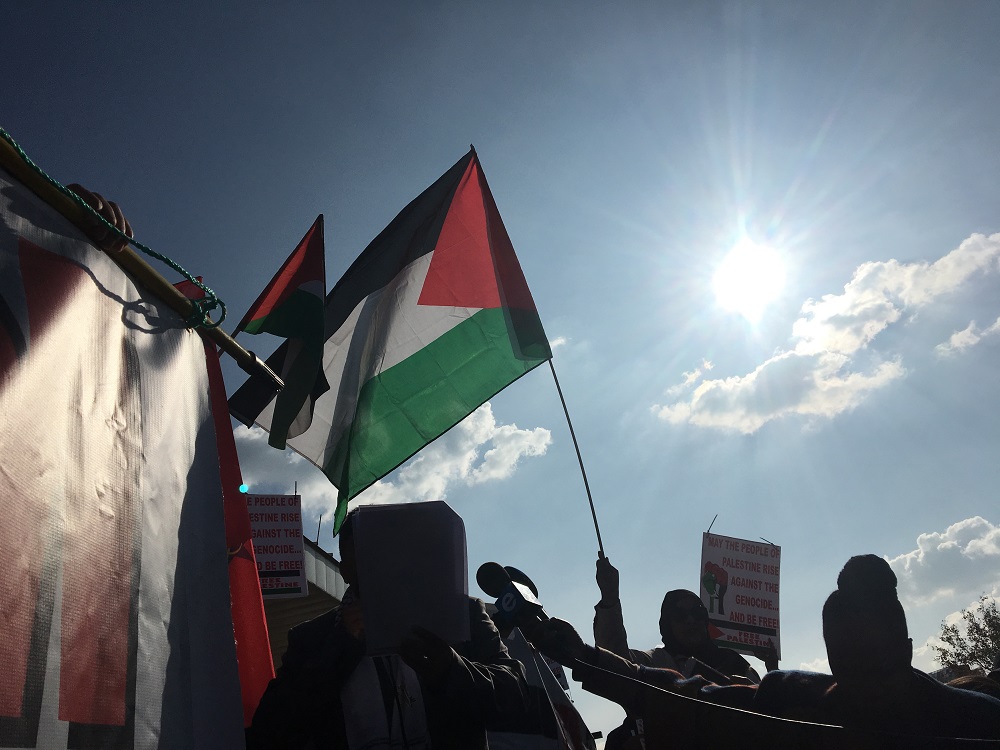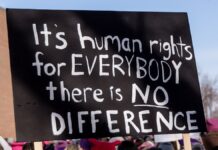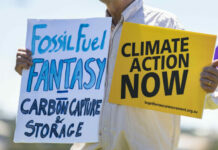The events of the past few weeks which have left hundreds of Palestinians dead and thousands injured has left most of the world reeling. However, along with the worldwide condemnation of the indiscriminate use of violence by the Israeli state against Palestinians, there has also a blatant bias and justification of Israel’s action. The Daily Vox team spoke to Mariam Barghouti, a Palestinian-American writer living in Palestine to get her story.
What does it mean to be Palestinian?
That is a very big question. It is a belief. To be Palestinian is to believe in life. It is [a] belief that we can be better, that we don’t have to be oppressed, that we have a voice and we can fight. To be Palestinian is to be burdened with this cause but still persevere. It is to be vulnerable and strong all at once. There are so many things to define what it is to be Palestinian. But right now, in this moment in history being Palestinian is fighting for life.
The Israeli government has constantly been trying to erase the Palestinian identity and not just Palestinian as a whole but mainly the identity of resistance and struggle. That is why you hear Netanyahu saying you will never ever conquer us or you will never be able to win. It is trying to make us so passive so that we accept this oppression.
Can you explain the current situation in Palestine?
In the past couple weeks, you’ve seen the people of Gaza protest. There was some protests in the West Bank, in Jerusalem. The Palestinians are living a normal life. Our lives are not just in protest. We are continuing and persevering as Palestinians and that in itself is defiance. But in the past few weeks, just like in the past few decades, Palestinians are so painfully trying to rid themselves of this oppression and colonisation. I am very frustrated with the media presenting it as a solo act or an anomaly or as something new. Palestinians have been resisting for decades and we are only reported on when the Israeli side is uncomfortable but the violence enacted against us is not reported. It’s only an escalation of violence when Palestinians are fighting back. How is that reporting?
What do Palestinian people want?
Liberation – that is the very simple answer. Everything else is just a means to reach that goal. But what we want is liberation, to live in freedom, to live in dignity.
And to get to that goal was is required from the international community?
The bare minimum that we ask of the global community is to not be complicit in our oppression. That means do not fund Israeli oppression and do not treat Israel like a normal state. Do not under any circumstances legitimise what is happening here by using the arguments that the Israeli government has been using as an excuse to killing Palestinians, as a excuse to stealing our land and kicking us out of our homes and demolishing our homes. That is the bare minimum. We are not asking the world to liberate us. We are asking stop funding our oppressors.
Those are little actions that should be taken in concurrence with the world standing against apartheid. Like in South Africa, they need to stand against colonialism in Palestine. Now there are parallels between South Africa and Palestine but they are not the same. But in the end it is under the same umbrella. If you rejected an oppression at another place but justified it in somewhere else, you never stood against oppression.
You mentioned colonialism. Why do you call what is happening colonialism?
Palestine was taken over by the Zionist movement in the early 1900s and what the state of Israel is built on is massacring thousands of Palestinians. Kicking them out of their homes in 1948 and trying to replace to Palestinian population with an Israeli one, and not just an Israeli one, a Jewish only population and that is ethnic cleansing. It is when you place a single people over others, how can you not say that is ethnic cleansing? That is settler colonialism by the very definition of it. And we must be brave enough to say that is what it is.
Why do you think Palestine is such an emotive issue as opposed to other conflicts?
I think because it is one of the most disgusting things of the past colonialism, that we think we’ve moved on as a collective society but the fact that there is still a settler colonialism going on in the 21st century. It’s something that strikes a nerve in people especially as we are advancing in some any different areas and sciences and the arts, but we still have a colonisation going on in the 21st century – that’s something that naturally sparks a nerve. As for the comments about what’s happening in Yemen, Bahrain, Syria, Venezuela etc., those are causes that also warrant our attention. This is not a race over who is suffering more. It is not a competition. If you stand against oppression, gladly stand against all of it. That includes Syria, that includes police brutality in the US, that includes Yemen, it includes what I still consider a form of apartheid in South Africa that is ongoing. It is not a competition. It’s a disservice to that.
What is the context out of which the Great Return March arose?
We keep mistaking that the Great Return March etc is being formed as a reaction to the embassy move. It is not. The embassy is only one single move and detail in what we are fighting for and that is the right to return and the right to be free. The Return march started six weeks ago on Land Day and that is very symbolic because it returns back. We are not mobilising because one US president has decided that it is okay to give away a land that is not his. We are fighting to say we are against all these measures of delegitimising of our resistance, of delegitimising our right to return, of criminalising us for fighting back, and that is the context of the Great Return March and the protests.
What do Palestinians need moving forward?
All action. I don’t have to reduce mobilisation to a single way. Palestinians will find our role and what we can give and give it. Whether that just means saying I am Palestinian at a checkpoint when an Israeli soldier wants to make you feel ashamed of being Palestinian, whether that means you are protesting on the streets. Most importantly we need to stand together. We need to fight this division. Gaza is not its own state. West Bank is not its own state. Palestinians with Israeli citizenship are not Israelis. We are one. Palestinians in Lebanon are part of us. Palestinians in exile are part of us and we need to fight this division. That is the most important thing.
What should South Africans be doing to help Palestine?
I always say always work in your own society, make sure that you are working towards a community that will refuse oppression and that will implicitly help Palestine. We are not asking for a hand to be extended to save us. We are saying do not treat Israel as a normal state, do not treat oppression like it is something that can keep going on and that’s it. Tha’s all we are asking. We are not saying come and fight for us. If you are in South Africa and you want to help Palestinians, help by refusing to remain in normal relations with Israel until it stop its occupation.
‘Expel Israeli Ambassador To SA’: How SA Responded To Gaza Killings
Was the decision by the SA government important?
It is a hundred percent the right step forward and it is a step that sends a very clear message to Israel that we will not tolerate what you are doing, that the South African state is a state of principle. It is a state that has fought apartheid and will not be complicit in it. I hope that they do not send the ambassador back after this wave flies over. I hope it is not reactionary.
Interview has been edited for clarity and brevity









